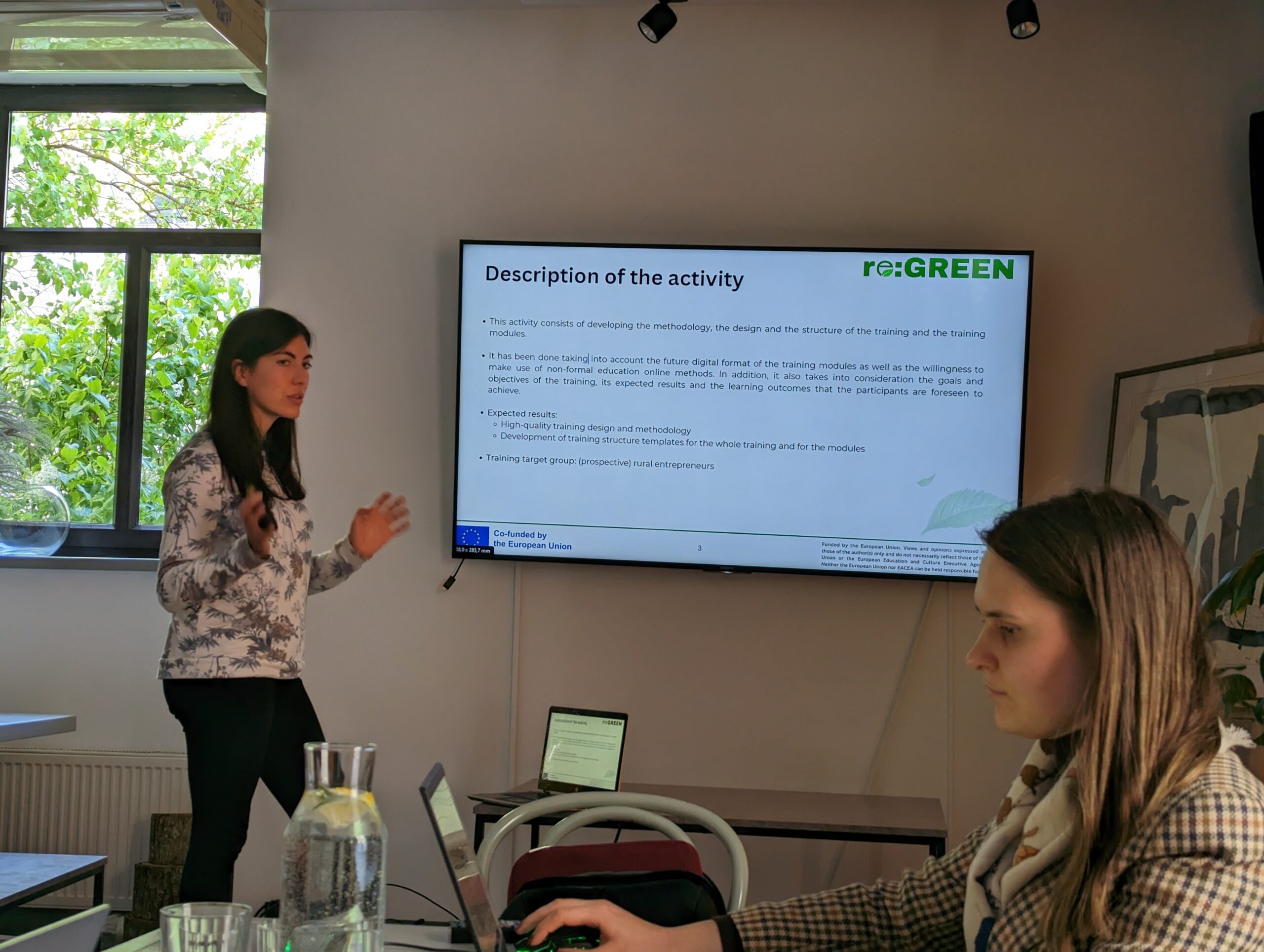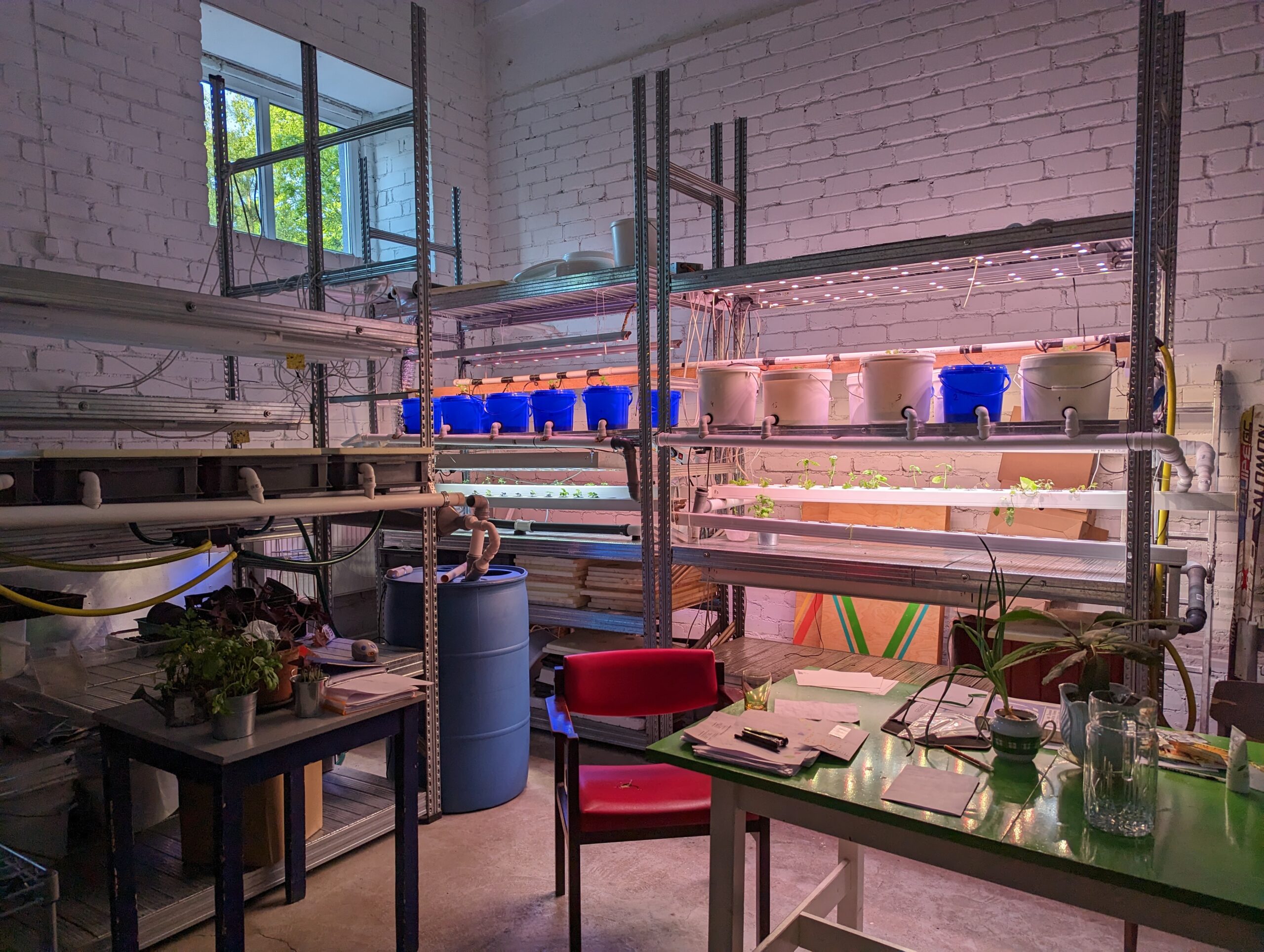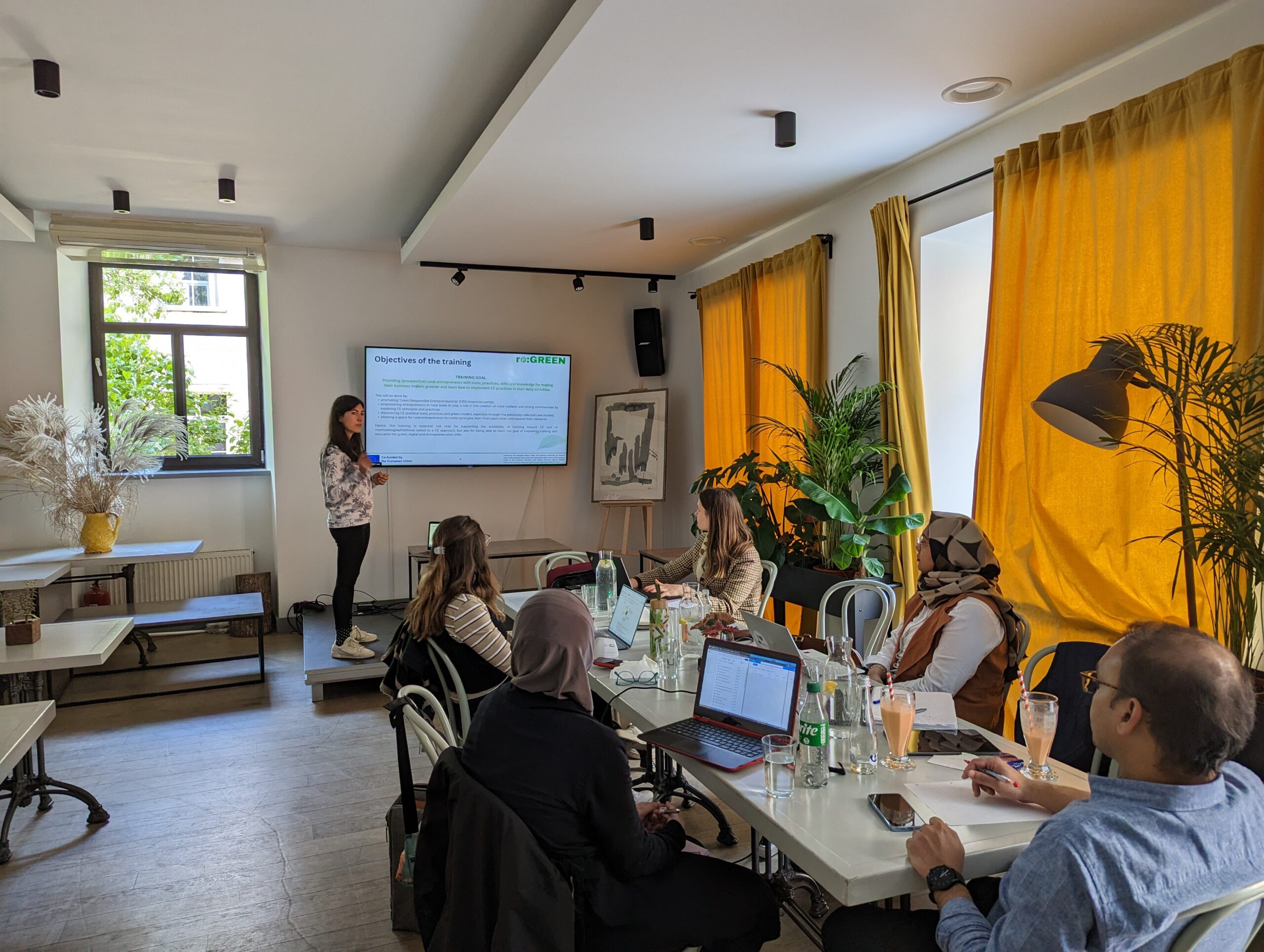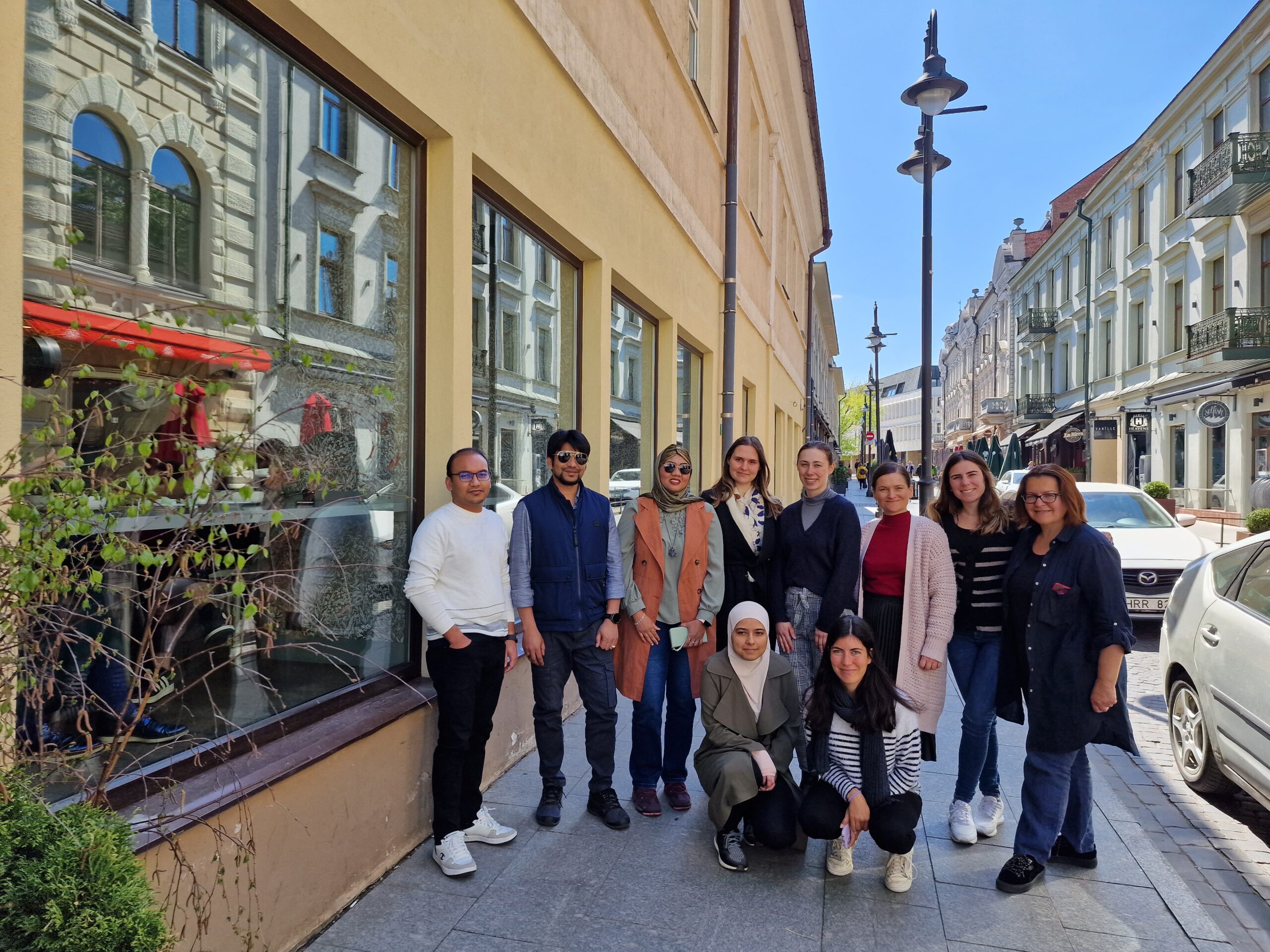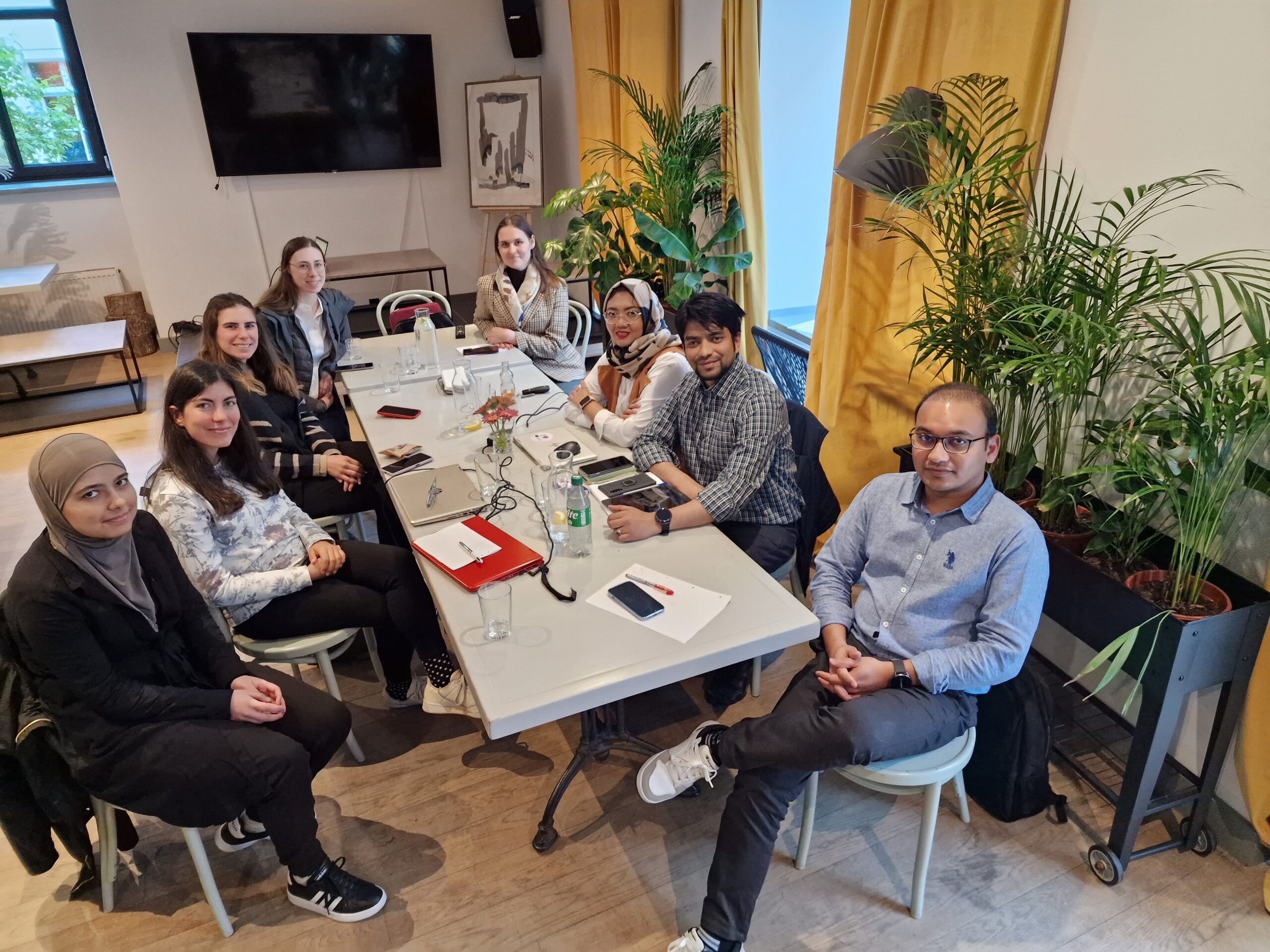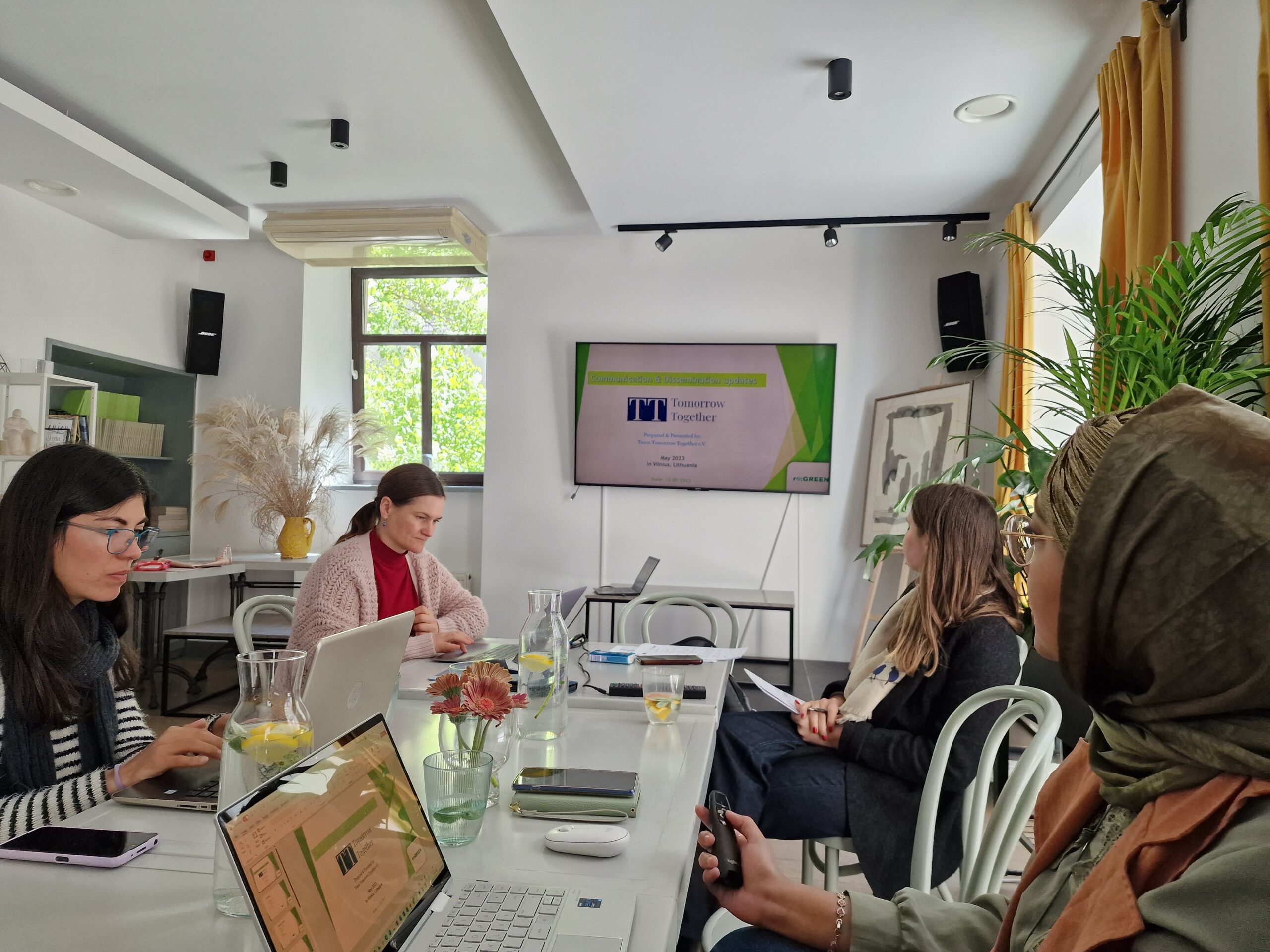
Green and Digital Skills for Rural Entrepreneurs
Rural entrepreneurs often face challenges in accessing training and resources to create and adapt sustainable, circular businesses. Limited access to training and exposure to innovative business models due to geographical barriers can create obstacles to creating resilient and sustainable communities. To address these challenges, a new project aims to support rural entrepreneurs in strengthening their businesses and ideas by transferring knowledge related to circular and resource-efficient business models as well as digitalization.
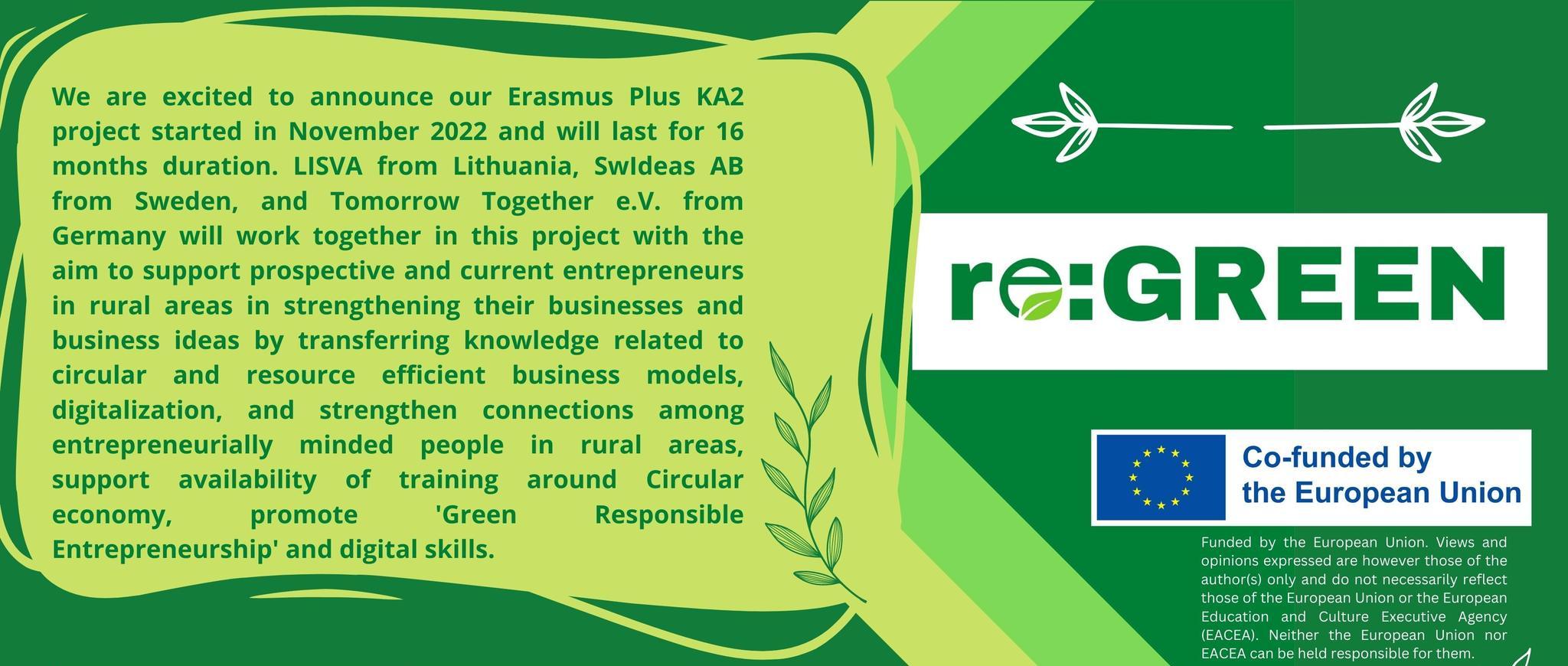
Project Partners

Tomorrow Together, a young and dynamic NGO with a mission to promote sustainability and support international sustainability strategies. Our experienced team is dedicated to raise awareness on the importance of sustainable action and working towards the United Nations Sustainable Development Goals 17. With a focus on areas such as migration, media & culture, non-formal education & training, and environmental protection, we bring together experts and individuals through events, conferences, and discussions. Let’s work together to promote human rights, peace, and positive discourse on migration and integration.

A dedicated Swedish organization to make a positive impact in the world through entrepreneurship, CSR, and social development. Our team of 8 highly motivated staff members work with partners to advance bold and innovative solutions that tackle root causes and drive change. At SwIdeas, we believe in supporting the rule of law, promoting human rights, and valuing diversity in all its forms. With two operational units, one focused on development services and the other on business services, there’s never been a better time to get involved. Let’s work together to create a more sustainable and better future for all!

Lithuanian Social Business Association (LiSVA), a national organization dedicated to promoting and supporting social enterprises in Lithuania. Our goal is to create a favorable environment for social business and increase awareness of this important concept. We advocate for social enterprises, provide capacity building to member organizations, initiate academic research, and engage in promoting social entrepreneurship to the wider public. Let’s shape the future of social entrepreneurship together!
OBJECTIVES
- Strengthening connections among entrepreneurially minded people in rural areas through collaborative work based on fruitful and complementary exchanges.
- Supporting the availability of training around Circular economy (CE) and methodologies/methods suited to a CE approach.
- Promoting 'Green Responsible Entrepreneurship' (GREntreprenerurship) coupled with digital and entrepreneurial skills.
- Empowering entrepreneurs in rural areas to play a role in the creation of more resilient and strong communities.
- Empowering relevant stakeholders with tools to give continuance to sustainable practices that can play a role in building community resilience.
- Building the knowledge of the participating organizations to explore their different areas of expertise and apply a circular approach to activities.
- Supporting individuals from rural areas in the recovery from the Covid-19 pandemic and building resilience by integrating digitalization to rural business models.
APPROACHES
To achieve all objectives, the project will take a multidisciplinary approach to promote circular economy practices and upskilling pathways. The project will focus on practical adoption of these methods in entrepreneurial activities, as entrepreneurship represents a big opportunity for innovation, which is fundamental for change to occur. The project recognizes the importance of inclusivity and diversity in achieving sustainability and resilience. Therefore, it aims to bridge the gap between rural and urban settings by promoting green responsible entrepreneurship coupled with digital and entrepreneurial skills. This will help to address geographical barriers and limited access to training, thereby improving accessibility and diversifying learning opportunities.
TARGET GROUPS
Our project aims to involve a diverse range of participants, including rural entrepreneurs, prospective rural entrepreneurs, supporting organizations, trainers, educators, and staff from diverse socio-cultural backgrounds. We will also engage with different stakeholders and end-users through co-creation and interactive approaches. The target group of the outreach phase and its Open House Events will be the partner organizations, (prospective) rural entrepreneurs, stakeholders such as organizations working with entrepreneurship and/or working on rural development/circular economy, and other interested individuals (at least 15 per partner). Each partner will conduct an active promotion campaign through suitable means, inviting participants to engage in the project activities and events. If relevant, a sign-up process will be undertaken, in which potential participants will be asked to complete a survey to check their suitability for the objectives of the activity/event.
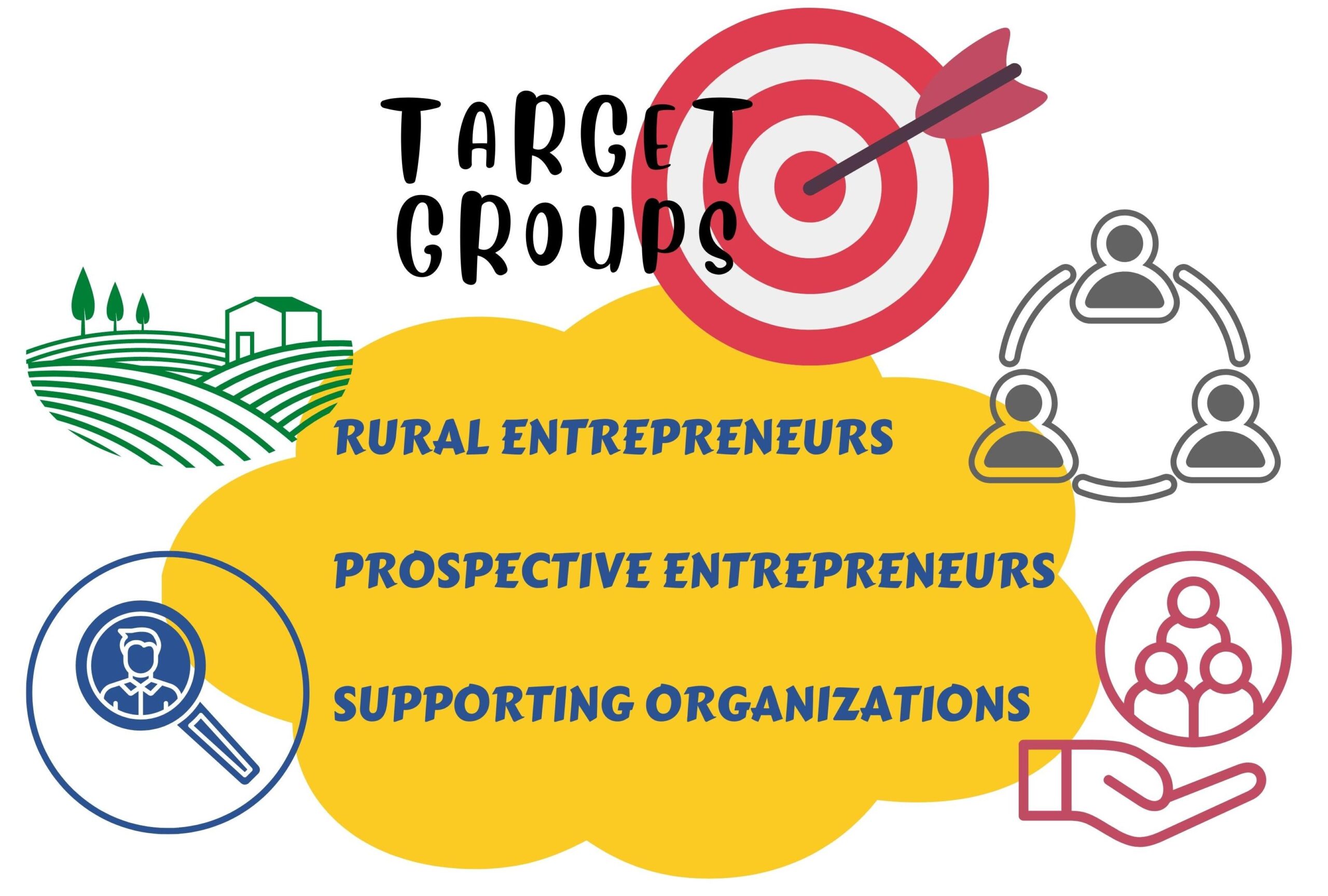
Project Activities
Publications
Events






The project aims to equip rural entrepreneurs with knowledge and skills to create and adapt sustainable, CE-based business practices and contribute to the fight against climate change. By strengthening connections among entrepreneurially minded people, promoting circular economy practices and upskilling pathways, empowering entrepreneurs in rural areas, and promoting inclusivity and diversity, the project seeks to build resilience and create a more sustainable future.


